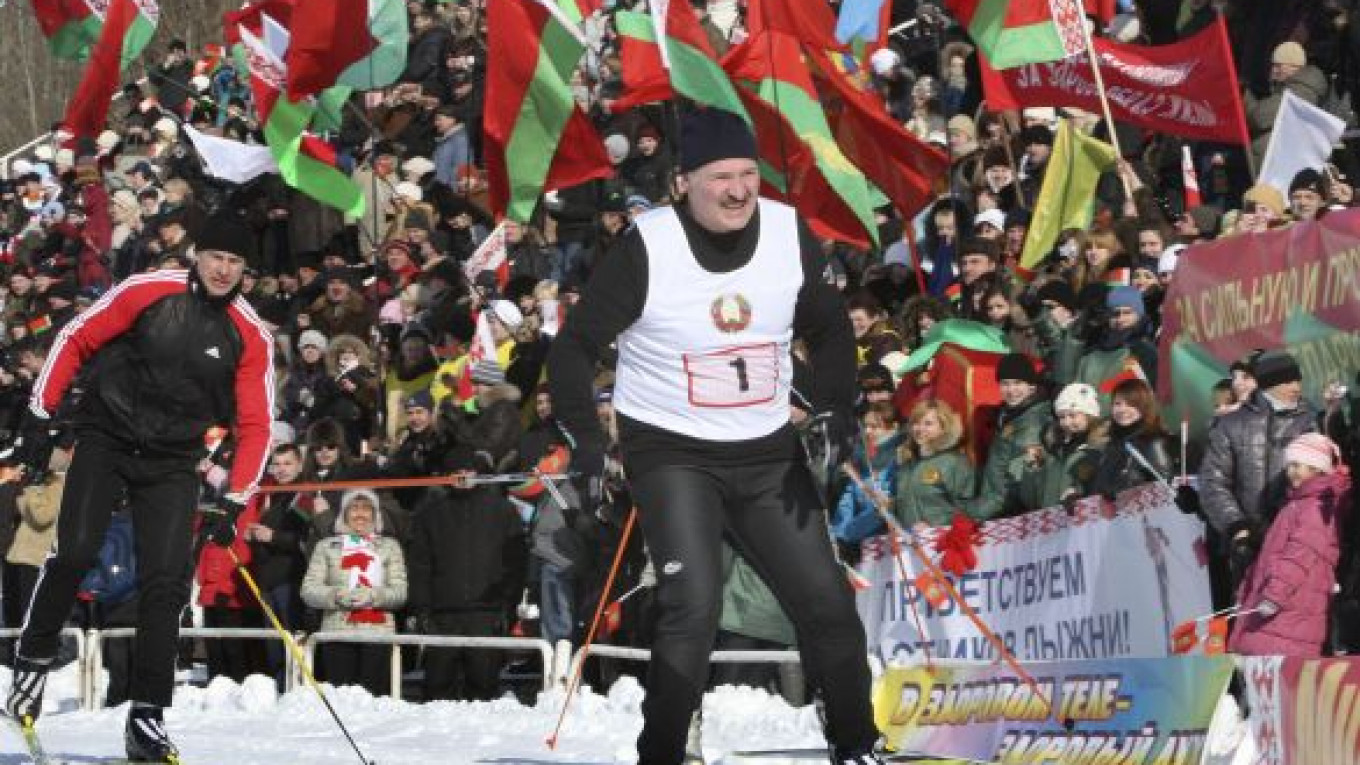MINSK — Belarussian President Alexander Lukashenko urged the government and Central Bank on Friday to tighten control over flows of foreign currency, saying it would ease pressure on the Belarussian ruble.
The former Soviet republic's currency has come under pressure after the
government boosted spending and lending last year in the run-up to the
presidential election in which Lukashenko secured his fourth term in office.
"We are too relaxed about the way foreign currency revenues are used," he told a government meeting, according to the state news agency BelTA.
"A few hundred or a few dozen key companies are bringing foreign currency into the country and the prime minister and the Central Bank chairman, guided by strange free market theories, are handing out this currency left and right. Anyone can go to the exchange and buy as much as he wants."
The Belarussian Central Bank's reserves shrank by more than 600 million in 2010 and by $650 million last month alone. The reserves stood at $4.3 billion at the end of January.
Belarus' current account deficit reached 16 percent of gross domestic product last year, according to IMF estimates, and is unlikely to decrease significantly this year.
The IMF has advised Belarus to tighten its monetary policy to reduce the current account gap. But the Central Bank has since said it saw no need to raise rates.
Instead, Belarus increased forex trading fees 200 times last month. Lukashenko called Friday for further tightening but provided no details.
"Order must be restored here. … We will have no problems with the exchange rate then," he said.
The Central Bank has said the ruble exchange rate this year will not rise or fall more than 8 percent against a basket of three currencies: the dollar, the euro and the Russian ruble.
The basket's base rate for this year is 1,054.68 rubles to basket.
In January, the Belarussian ruble fell 2.6 percent against the basket. It traded at 3,020 rubles per dollar Friday, while the rate against the basket was 1,095.17 rubles.
Several ex-Soviet republics, such as Uzbekistan and Turkmenistan, have in the past restricted or continue to restrict forex trading to ease the pressure on Central Bank reserves and exert tighter control over the economy.
This led to the emergence of two separate exchange rates: the official rate, at which only a few chosen players could buy foreign currency, and the "black market" rate used by everyone else.
A Message from The Moscow Times:
Dear readers,
We are facing unprecedented challenges. Russia's Prosecutor General's Office has designated The Moscow Times as an "undesirable" organization, criminalizing our work and putting our staff at risk of prosecution. This follows our earlier unjust labeling as a "foreign agent."
These actions are direct attempts to silence independent journalism in Russia. The authorities claim our work "discredits the decisions of the Russian leadership." We see things differently: we strive to provide accurate, unbiased reporting on Russia.
We, the journalists of The Moscow Times, refuse to be silenced. But to continue our work, we need your help.
Your support, no matter how small, makes a world of difference. If you can, please support us monthly starting from just $2. It's quick to set up, and every contribution makes a significant impact.
By supporting The Moscow Times, you're defending open, independent journalism in the face of repression. Thank you for standing with us.
Remind me later.






